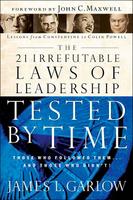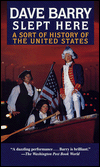Sunday, September 25, 2005
Travels with Charley by John Steinbeck
My Mom is a book lover (guess I come by it honestly.) Several years ago she gave me the collected works of John Steinbeck for Christmas. At the time I had read only one of his books (Cannery Row.) Since then, I've read several from the collection. My friend Kirk (who I'm finding out is quite the literary cohort) recommended that I read Travels with Charley.
After achieving great success, Steinbeck moved from California to New York. He felt that he had lost contact with the great country that he wrote about. So, as an aging writer, he decided that he needed to reconnect with America. So how do you do that? You buy a custom fitted truck with a camper on the back, load up your gentleman French poodle, and drive around the country.
Travels with Charley is a travel log/journal/commentary. Steinbeck recounts the people, places, oddities, and attitudes that he encounters. Parts of it are hilarious (stupid turkeys), parts are interesting (the hotel in Chicago), parts are introspective (shooting in the desert), and some are historical (racism in the South.) Best of all, you get a very unique perspective on what America was like in the early 1960's. Reading it is like riding in the cab of the truck with him. The only disappointing part of the book is the ending. He gets about three states from home and basically drives the rest of the way without stopping. However, this leads to a great quote...
After achieving great success, Steinbeck moved from California to New York. He felt that he had lost contact with the great country that he wrote about. So, as an aging writer, he decided that he needed to reconnect with America. So how do you do that? You buy a custom fitted truck with a camper on the back, load up your gentleman French poodle, and drive around the country.
Travels with Charley is a travel log/journal/commentary. Steinbeck recounts the people, places, oddities, and attitudes that he encounters. Parts of it are hilarious (stupid turkeys), parts are interesting (the hotel in Chicago), parts are introspective (shooting in the desert), and some are historical (racism in the South.) Best of all, you get a very unique perspective on what America was like in the early 1960's. Reading it is like riding in the cab of the truck with him. The only disappointing part of the book is the ending. He gets about three states from home and basically drives the rest of the way without stopping. However, this leads to a great quote...
"Who has not known a journey to be over and dead before the traveler returns? The reverse is also true: many a trip continues long after movements in time and space have ceased."Rating: 3 Stars
Sunday, September 18, 2005
7 Practices of Effective Ministry by Andy Stanley

Any book that has a baseball theme already has my attention. Any book that could help me be a better minister already has my attention. When I first started reading this book a couple weeks ago, I was quoting it to everyone in my office. I'm sure they were sick of hearing me say, "Andy Stanley says...blah blah blah." However, like a pitcher who gets tired in the late innings, this book started off with a bang, but grew tired in the end.
Andy Stanley started North Point Church in Atlanta and it has grown quickly. Along with that growth has come the fame and following of being the new "great young preacher." It also helps that you start publishing your own line of books. With this book, Stanley (along with others from his staff) takes a page from Patrick Lencioni (one of my favorite "business" authors) and begins with a fable about a minister who goes to a baseball game with the owner of a team. The owner of the team then helps the young minister find his way with sage advice and wisdom. Basically, the premise of the book is that there are 7 practices that everyone should follow to be an effective church.
Strong Points: When you take away all the jargon and nonsense, Stanley is basically advocating "intentional and limited" ministry. I see this trend among the younger generation of ministers. It seems like the older generation (read mostly 55+) practice what I call entrepreneurial ministry. This was basically do lots and lots of different things and try to meet as many needs and scratch as many itches as you can, even if you don't do some things well. Intentional and limited ministry says to only do those things that you can do very well and don't do anything else. One particular facet of this approach is to rationalize every single thing by the goal you're striving for. If you can't justify it by the end result, then abandon it. As a young (read 36) minister, I really identify with this approach. His first practice on defining "winning" hit a home run with me. However, I think he takes the concept way to far in the chapter on teaching (he says that you should basically only teach and preach the "most important" passages and leave the rest alone.)
Weak Points: Stanley falls in the predictable trap that virtually every mega church minister does when writing books: their church does everything the right way and it is the the best way to do anything. This comes through very clearly in this book. So many churches (and ministers) take whatever the mega church minister says as gospel truth. In reality, there are many successful ways of growing a church, not just one. This is the primary drawback to the book: you have to listen to how North Point knows the best way to do everything.
Overall, this was a useful book and I recommend reading it with an objective eye.
Rating: 2 Stars
Wednesday, September 14, 2005
21 Irrefutable Laws of Leadership Tested by Time by James Garlow
 I love a good hot dog. But over the past week I've had exactly seven. As I was finishing the seventh yesterday, I thought I was going to spew (which would have been embarassing since I was as Tapawingo National Golf Course at a really nice tournament.) A little of a good thing is fantastic. But by the seventh hot dog, a good thing turns sickening. Now I don't want a hot dog (which I really like) for a long time. This book was like eating seven hot dogs.
I love a good hot dog. But over the past week I've had exactly seven. As I was finishing the seventh yesterday, I thought I was going to spew (which would have been embarassing since I was as Tapawingo National Golf Course at a really nice tournament.) A little of a good thing is fantastic. But by the seventh hot dog, a good thing turns sickening. Now I don't want a hot dog (which I really like) for a long time. This book was like eating seven hot dogs.John Maxwell, is the self proclaimed guru of leadership. He has some good ideas and principles, but if you have read one of his books then you're read them all. His book titled The 21 Irrefutable Laws of Leadership was a descent read. James Garlow (who followed Maxwell as Sr. Pastor at Skyline Wesleyan) took the 21 Laws and illustrated them from people in history.
Since I'm a serious history buff, I thought this would be enthralling reading. After two chapters, it just became a chore to read. By the end, I was just shoving the hot dogs down. Great concept, great research, even good writing. It just wasn't worth a whole book. I kept thinking, "Didn't I just read this chapter?" Should have stopped with two hot dogs.
Rating: 1 Star
Friday, September 09, 2005
The Book Store

Yesterday was an absolute whirlwind of a day. The day began 7:30am teaching Greek and ended at 10:00pm teaching a class at church on Bible study resources. In between, it was a non-stop barage of conversations, hospitals, problems, errands, meetings, "I only need to talk to you for a minute" meetings that lasted 30, solutions, and open house for my kids at school. In between hospital visits and an early lunch meeting, I discovered an empty hour in my schedule. So, I was just going to sleep in my car in the restaurant parking lot (that's the kind of week it has been--that I would actually consider that kind of sleep desirable.) But, as I pulled into the parking lot, I saw a gift from heaven--BORDERS!
I almost cried. What a blessing to have a free hour in a bookstore in the midst of a crazy day. It was like a cool drink of water while walking in the desert. I was reminded that I absolutely LOVE bookstores. Stepping through the doors was like entering the secret treasure room. The "Literature" section called my name. That was the fastest hour I've had in a long, long time. I didn't walk out with any new books (it's hard to pay retail with the internet), but my soul was definitely refreshed and I thanked God for the little blessing of the book store.
So, what is your favorite bookstore to get lost in? Which section do you usually end up in?
Tuesday, September 06, 2005
Dave Barry Slept Here by Dave Barry
 Well, this will be a first for The Book Beat--a negative book review.
Well, this will be a first for The Book Beat--a negative book review.Let me start with this disclaimer: this is the first (and likely only) thing I have ever read by Dave Barry. Yeah, I know he has been really popular for a really long time. Yeah, I know people have read his newspaper columns forever. Yeah, I know people think he is really funny. I realize that sometimes you have to get a sense of an author to really "get" his/her stuff. If that is the case, then I will probably never "get" Dave Barry as I don't plan on reading anything else he's written in the near future. Feel free to recommend something else that would change my mind or to convince me otherwise. I'm open to being convinced.
I love comedy and satire, so it wasn't lost on me. I love history, which probably didn't help in liking this book. Basically, this was a smart-alleck's recounting of the history of the United States. He told the history, but mixed up the facts and basically made fun of everything. For example, everything happened on October 8 (his son's birthday.) It's not that I don't like humor or wise cracks; it's just that I thought that his schtick got really old after the first chapter. It was like being around an obnoxious 9 year old who makes you laugh once, but then keeps doing the once funny thing until you begin to get annoyed and finally tie him to the chair and duct tape his mouth shut (not that I've ever done that--or at least that can be proved!)
My brother (who loaned me the book) can't understand why I didn't like it. For which, I don't really have an explanation except this: it probably is funnier the less history you actually know. Of course, I teach some college students who would probably think this is an actual history book, but that is the subject of another blog.
Rating: 0 Stars (OUCH!)







